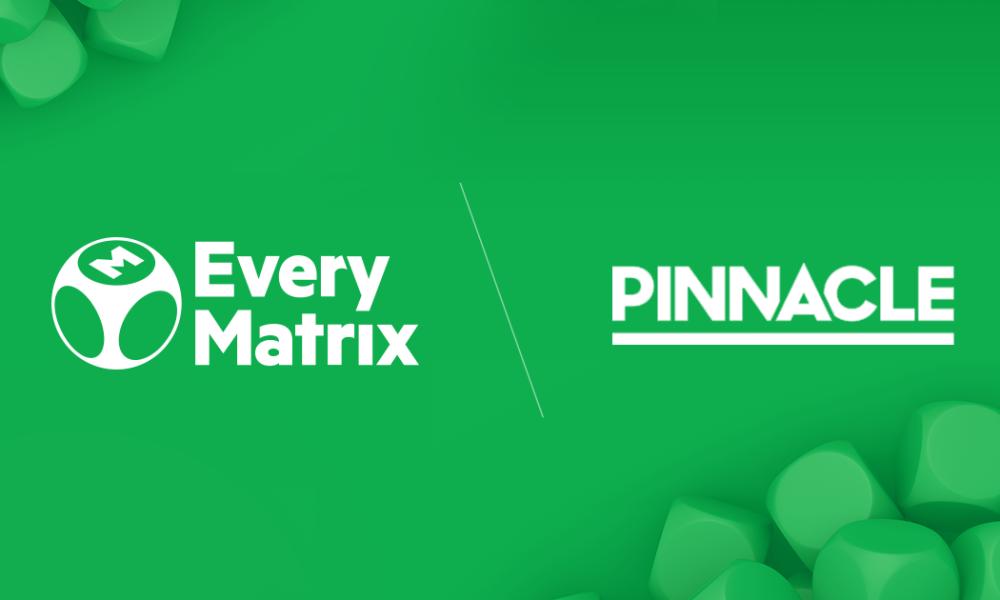

Canada
DraftKings Mobile Sportsbook Set to Launch Friday in Louisiana
Following the opening of a new retail sportsbook in Louisiana alongside Golden Nugget Casino Lake Charles, DraftKings Inc. will expand its relationship with Golden Nugget Casino Lake Charles when it launches mobile sports betting for eligible customers in the state’s permitted parishes starting 8am CT on Friday, January 28th. Louisiana becomes the 17th state to offer DraftKings’ online sportsbook, and the company is now live in 18 states including retail-only jurisdictions. With several professional franchises in addition to Division I collegiate athletics, there are ample hometown fanbases and opportunities in Louisiana to engage.
“There have been several DraftKings developments in Louisiana in the last year alone, including the debut of our daily fantasy products and retail sportsbook, and this latest online sportsbook launch is another significant milestone,” said Matt Kalish, co-founder and president of DraftKings North America. “Although Louisiana bettors have previously been able to place wagers in person at our Golden Nugget Casino Lake Charles location, the arrival of mobile betting greatly enhances accessibility and adoption potential within the Pelican State.”
Since the Louisiana retail sportsbook launch in November 2021, NFL teams have been the most popular among local bettors with the Tampa Bay Buccaneers, Dallas Cowboys, Kansas City Chiefs and Los Angeles Rams taking the most action. A five-team NFL parlay during Week 17 stands as the largest winning wager among Louisiana retail bettors where a $1,000 wager netted $72,000 in winnings. DraftKings’ football wagering popularity also reigns at the collegiate level as the 2022 College Football National Championship between Georgia and Alabama on January 10th ranks as the most heavily bet event to date.
As with all states, including Louisiana, responsible gaming is a key pillar of the DraftKings S.E.R.V.E.S. program. DraftKings is an active member of the American Gaming Association (AGA) and the National Council on Problem Gambling (NCPG), and has tools like self-imposed player limits, identity verification and geolocation to ensure all customers are provided with a secure and safe gaming experience.
AGLC
AGLC Announces New Board Chair

Alberta Gaming, Liquor and Cannabis (AGLC) has announced the appointment of Larry Spagnolo as the new Board Chair, effective August 15, 2025. This announcement follows the official Order in Council issued by the Alberta Government and marks a new chapter in AGLC’s ongoing commitment to support communities, encourage responsible choices and position Alberta as the best place to do business.
Larry brings a wealth of experience in technology and business leadership to the AGLC Board and will play an integral role in guiding AGLC’s strategic direction. He is currently serving as VP and GM of Emerson’s SaaS SCADA business and has held senior roles at Zedi and Telus, driving innovation, growth, and global success.
A strong advocate for education and community, Larry serves as Vice Chair of Athabasca University’s Board of Governors and has held board roles with NAIT and Polytechnics Canada. He was awarded the King Charles III Coronation Medal for his community contributions.
AGLC and the Board of Directors extend their heartfelt thanks to Len Rhodes for his leadership and dedication as Board Chair since August 2019. He decided not to seek a third term and will continue to serve in this role until August 14, 2025. Len led AGLC through some significant milestones, including reducing red tape by 51%, growth of the emerging cannabis industry and ensuring AGLC delivered a balanced approach to business development, social responsibility, and regulatory oversight.
The post AGLC Announces New Board Chair appeared first on Gaming and Gambling Industry in the Americas.
Bonus Guardian
Pinnacle Ontario live with CasinoEngine in North America debut

EveryMatrix has expanded its partnership with tier-1 operator Pinnacle powering its new casino in Ontario, Canada, using CasinoEngine platform technology – the first time its platform solution has gone live in North America.
The latest agreement builds on the two companies’ previous collaboration that saw EveryMatrix’s CasinoEngine productivity platform power the well-known brand’s global casino offering.
The new launch takes the relationship to North America, marking EveryMatrix’s debut CasinoEngine platform integration in that market.
BonusEngine, EveryMatrix’s cross-vertical bonusing tool will be integrated in the second phase of launch. This will equip Pinnacle Ontario with a host of bonus types as well as AI-powered bonus abuse solution Bonus Guardian.
BonusEngine is the first of multiple engagement tools from EveryMatrix’s EngageSuite that Pinnacle plans to integrate.
With this comprehensive toolkit at its disposal, and the opportunity to add even more casino products in the future, Pinnacle Ontario can tailor campaigns, segment audiences, and reward players more effectively, creating a world-class digital entertainment experience for its customers.
EveryMatrix has more than 300 global customers and holds North American licences in Ontario, New Jersey, Michigan, West Virginia, Connecticut and Pennsylvania.
Stian Enger Petersen, CEO, Casino, EveryMatrix, said: “This launch marks a key milestone for EveryMatrix as we bring our market-leading CasinoEngine platform to Canada for the first time.
“We’re delighted to expand our partnership with Pinnacle and support their ambitions in Ontario with a powerful combination of platform, content, and engagement tools that are proven to drive success.”
The post Pinnacle Ontario live with CasinoEngine in North America debut appeared first on Gaming and Gambling Industry in the Americas.
AGCO
Prime Skill Games Inc. Official Response to AGCO Press Release

As CEO of Prime Skill Games Inc., I feel compelled to address recent comments made by the Alcohol and Gaming Commission of Ontario regarding so-called unapproved gambling machines in convenience stores across the province.
Let me be perfectly clear
Our machines are not gambling devices. They are entirely skill-based, fully compliant with the law, and built on the fundamental idea that players are in control. The outcome of every session is determined solely by the player’s ability, not by random chance.
Prime Skill Games is proud to be the only true skill game operating in Ontario today.
We categorically reject any suggestion that our products fall under the definition of unregulated gambling. Such statements are inaccurate, misleading, and fail to recognize the critical distinction between games of skill and games of chance.
We stand firmly behind the legality of our machines and the integrity of our operations. We will demonstrate this through every available means, whether through legal documentation, expert analysis, or, if necessary, before the courts. We are prepared and unafraid to defend the truth.
To our players, partners, and business community, we want to reassure you that our mission has not changed. We are committed to offering a responsible, transparent, and innovative entertainment experience. We will not be intimidated by broad and baseless accusations, and we will continue to move forward with strength and clarity.
Sincerely
Matt Zamroźniak
Chief Executive Officer
Prime Skill Games Inc.
The post Prime Skill Games Inc. Official Response to AGCO Press Release appeared first on Gaming and Gambling Industry in the Americas.
-

 gaming3 years ago
gaming3 years agoODIN by 4Players: Immersive, state-of-the-art in-game audio launches into the next generation of gaming
-
EEG iGaming Directory8 years ago
iSoftBet continues to grow with new release Forest Mania
-
News7 years ago
Softbroke collaborates with Asia Live Tech for the expansion of the service line in the igaming market
-
News6 years ago
Super Bowl LIII: NFL Fans Can Bet on the #1 Sportsbook Review Site Betting-Super-Bowl.com, Providing Free Unbiased and Trusted News, Picks and Predictions
-
iGaming Industry8 years ago
Rick Meitzler appointed to the Indian Gaming Magazine Advisory Board for 2018
-
News6 years ago
REVEALED: Top eSports players set to earn $3.2 million in 2019
-
iGaming Industry8 years ago
French Senator raises Loot Boxes to France’s Gambling Regulator
-
News7 years ago
Exclusive Interview with Miklos Handa (Founder of the email marketing solutions, “MailMike.net”), speaker at Vienna International Gaming Expo 2018








